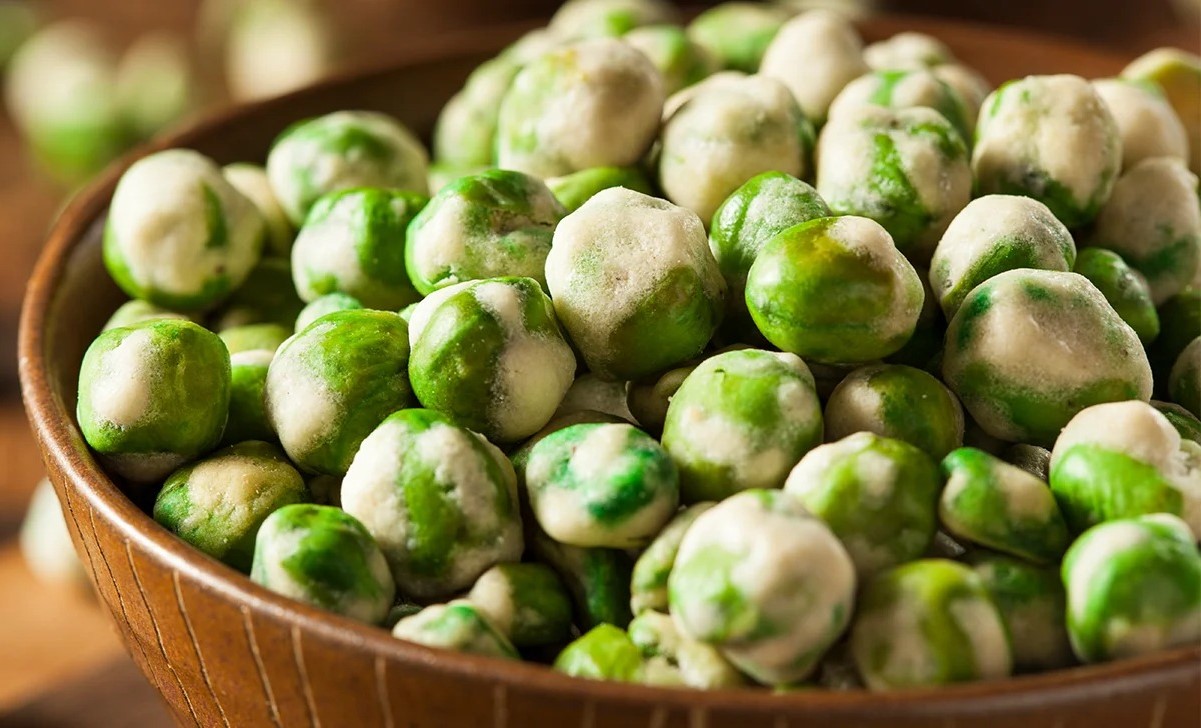
When it comes to snacking, finding a healthy and flavorful option can be a challenge. However, if you’re in search of a guilt-free treat that packs a punch of flavor, look no further than wasabi peas. These little green gems are not only delicious but also offer a plethora of nutritional benefits.
In this article, we will explore 18 fascinating and eye-opening nutrition facts about wasabi peas. From their high protein content to their vitamin and mineral profile, you’ll soon discover why these crunchy treats deserve a spot in your pantry. So, whether you’re a health-conscious individual looking for a satisfying snack or simply curious about the nutritional value of wasabi peas, read on to learn more about this popular and nutritious snack!
Key Takeaways:
- “Wasabi peas are a powerhouse snack, packed with vitamins, fiber, and protein. They provide a spicy kick and can curb cravings, making them a guilt-free and energizing snack option for everyone.
- Whether you’re looking for a convenient on-the-go snack or a crunchy addition to your salads, wasabi peas offer a healthier alternative to traditional snacks. They’re gluten-free, low in calories, and full of antioxidants!”
Wasabi peas are a good source of vitamins and minerals.
These tasty little snacks pack a nutritional punch! They are rich in vitamin C, vitamin B6, iron, magnesium, and phosphorus.
One serving of wasabi peas contains a high amount of dietary fiber.
Fiber is essential for a healthy digestive system and can help promote regular bowel movements.
Wasabi peas are low in calories.
For those watching their calorie intake, wasabi peas make a great snack option as they are relatively low in calories compared to other popular snacks.
They are a good source of plant-based protein.
Vegetarians and vegans can enjoy wasabi peas as a protein-rich snack alternative. They are made from dried green peas, which are naturally high in protein.
Wasabi peas are a good source of antioxidants.
Antioxidants help protect the body against cell damage caused by harmful free radicals. The peas themselves contain antioxidants, and the spicy wasabi coating adds an extra health boost.
They provide a natural energy boost.
With a combination of carbohydrates, protein, and fiber, wasabi peas can provide a quick and sustained energy boost, making them a great choice for a pre-workout snack.
Wasabi peas are gluten-free.
For individuals with gluten sensitivities or those following a gluten-free diet, wasabi peas can be a safe and enjoyable snack option.
They offer a spicy kick.
If you enjoy spicy foods, wasabi peas are perfect for you! The wasabi coating adds a flavorful and zesty kick to the crispy green peas.
Wasabi peas can be a satisfying alternative to unhealthy snacks.
Instead of reaching for a bag of chips or cookies, opt for wasabi peas. They provide a satisfying crunch and flavor while offering more nutritional value.
They make a great addition to trail mixes.
Add some excitement to your trail mix by incorporating wasabi peas. The combination of sweet and savory flavors creates a delicious and energizing snack.
Wasabi peas can help curb cravings.
The combination of protein, fiber, and flavor in wasabi peas can help keep hunger at bay and control cravings between meals.
They are a portable and convenient snack option.
Whether you’re on the go, at work, or on a road trip, wasabi peas can easily be packed into a container or baggie for a quick and convenient snack.
Wasabi peas can be enjoyed by people of all ages.
From kids to adults, wasabi peas are a versatile snack that can be enjoyed by the whole family.
They are a healthier alternative to traditional snacks like potato chips or pretzels.
When compared to calorie-dense and nutrient-poor snacks, wasabi peas offer a healthier option with more nutritional value.
Wasabi peas can be a part of a balanced diet.
When consumed in moderation as part of a well-rounded diet, wasabi peas can contribute to overall health and wellness.
They can add a crunchy texture to salads.
Sprinkle some crushed wasabi peas onto your salads for an extra crunch and a burst of spicy flavor.
Wasabi peas are a great source of plant-based iron.
Iron is important for oxygen transport in the body, and wasabi peas provide a plant-based source of this essential mineral.
They are a satisfying and guilt-free snack option.
Enjoying a handful of wasabi peas can satisfy your snack cravings without the guilt, thanks to their nutritional profile.
Conclusion
In conclusion, understanding the nutrition facts of wasabi peas can provide valuable insights for those looking to make healthier snack choices. These crunchy, spicy treats not only offer a unique taste experience but also come with several nutritional benefits. With their high fiber content, they promote healthy digestion and can aid in weight management. Wasabi peas are also a good source of protein, making them a suitable snack option for vegetarians or those looking to increase their protein intake. Additionally, they contain essential vitamins and minerals that contribute to overall well-being. However, it’s important to consume them in moderation due to their high sodium and calorie content. By being aware of these nutrition facts, individuals can enjoy wasabi peas as a flavorful snack while still maintaining a balanced diet.
FAQs
1. Are wasabi peas healthy?
Yes, wasabi peas can be a healthy snack choice due to their high fiber, protein, and vitamin content. However, they should be consumed in moderation due to their high sodium and calorie content.
2. Are wasabi peas suitable for vegetarians?
Yes, wasabi peas are a good source of plant-based protein, making them a suitable snack option for vegetarians or those looking to increase their protein intake.
3. Are wasabi peas gluten-free?
Most brands of wasabi peas are gluten-free, but it’s always recommended to check the packaging for any potential gluten ingredients.
4. Can wasabi peas help with weight management?
Due to their high fiber content, wasabi peas can help promote feelings of fullness and aid in weight management. However, portion control is crucial as they are also high in calories.
5. Are there any potential allergens in wasabi peas?
Wasabi peas contain soy, which is a common allergen. Individuals with soy allergies should avoid consuming them.
6. Can eating too many wasabi peas cause digestive issues?
Consuming an excessive amount of wasabi peas, like any high-fiber food, can potentially cause digestive issues such as bloating or gas. It’s important to consume them in moderate quantities.
Was this page helpful?
Our commitment to delivering trustworthy and engaging content is at the heart of what we do. Each fact on our site is contributed by real users like you, bringing a wealth of diverse insights and information. To ensure the highest standards of accuracy and reliability, our dedicated editors meticulously review each submission. This process guarantees that the facts we share are not only fascinating but also credible. Trust in our commitment to quality and authenticity as you explore and learn with us.


